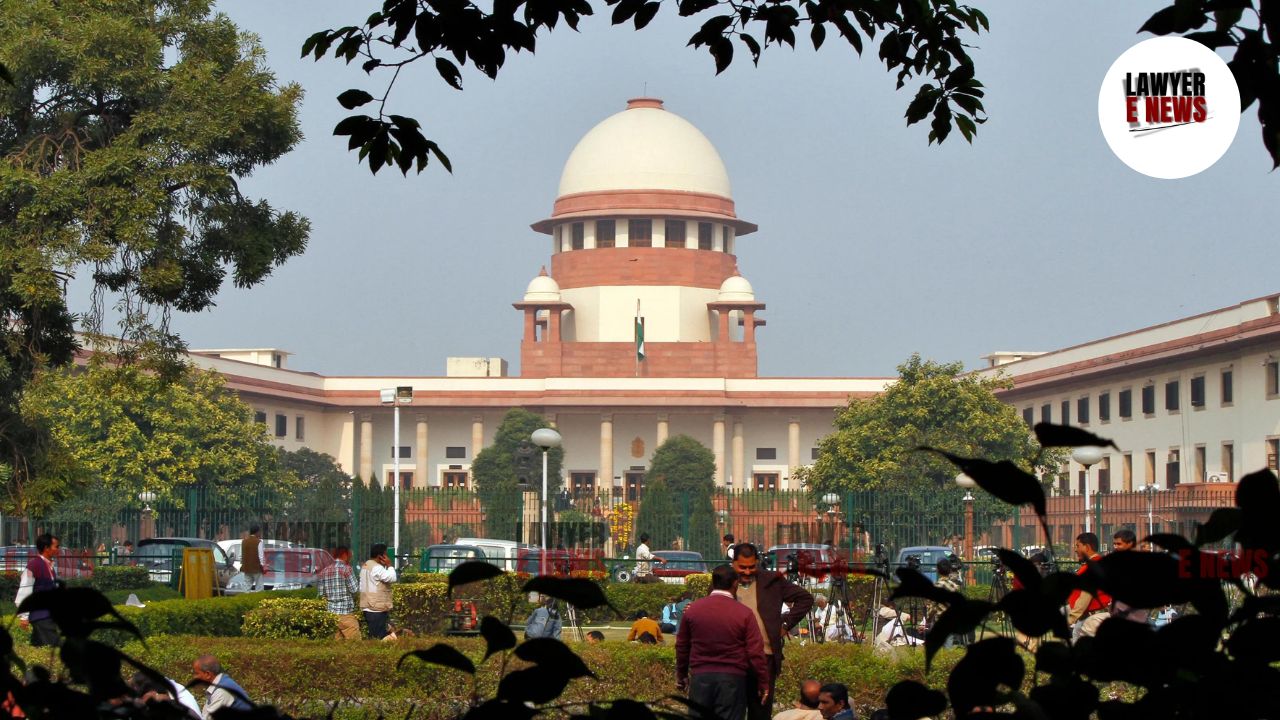-
by Admin
15 February 2026 5:35 AM



Supreme Court dismissed an appeal challenging the property rights of tribal women under the principles of justice, equity, and good conscience. The Court upheld the Chhattisgarh High Court’s judgment, which granted property rights to the daughters of Mardan, a tribal man, despite the inapplicability of the Hindu Succession Act, 1956 (HSA). The judgment reaffirms gender parity and calls for legislative action to extend inheritance rights to female members of Scheduled Tribes.
The dispute arose over 13.95 acres of land in Chhattisgarh's Bagri Pali village, originally owned by Mardan, a member of the Sawara Scheduled Tribe. After Mardan’s death in 1951, his brother Puni Ram and his descendants (the appellants) claimed exclusive ownership of the property, arguing that under Hindu law, daughters (respondents) had no right to inherit property before the enactment of the HSA, 1956.
The trial and appellate courts sided with the appellants, finding the family “sufficiently Hinduised” and governed by Hindu law. However, the High Court reversed this finding, holding that the HSA, 1956, does not apply to Scheduled Tribes under Section 2(2) unless specifically notified by the Central Government. Instead, it invoked the principles of justice, equity, and good conscience under the Central Provinces Laws Act, 1875, to grant property rights to Mardan’s daughters.
Legal Issues Before the Supreme Court
Applicability of the Hindu Succession Act, 1956 (HSA):
Could the HSA apply to the parties, who belong to the Scheduled Tribe, in the absence of a specific notification under Section 2(2) of the Act?
Tribal Identity and De-Notification:
Had the Sawara community lost its Scheduled Tribe status through assimilation into Hindu practices?
Justice, Equity, and Good Conscience:
Could these principles be invoked to grant property rights to Mardan’s daughters despite the statutory exclusion of Scheduled Tribes from the HSA?
Supreme Court’s Key Observations
HSA Does Not Apply to Scheduled Tribes
The Court reiterated that under Section 2(2) of the HSA, the Act does not apply to Scheduled Tribes unless specifically directed by a Central Government notification. No such notification existed for the Sawara tribe.
“The Hindu Succession Act, 1956, explicitly excludes Scheduled Tribes from its ambit unless the Central Government, by notification, directs otherwise.” [Para 6]
The Court also referenced its earlier decisions in Madhu Kishwar v. State of Bihar (1996) and Ahmedabad Women Action Group v. Union of India (1997), which upheld this statutory exclusion.
Tribal Status Remains Unless Altered by Notification
The appellants argued that the Sawara tribe had become “sufficiently Hinduised” and assimilated into Hindu customs, thereby subjecting them to Hindu law. However, the Court rejected this claim, holding that Scheduled Tribe status persists unless explicitly denotified by a Presidential notification under Article 342 of the Constitution.
“For a tribe to lose its Scheduled status, a specific notification is required under Article 342. No such evidence was produced by the appellants.” [Para 4]
The Court emphasized the constitutional framework for determining tribal status, citing State of Maharashtra v. Milind (2001) and State of Punjab v. Davinder Singh (2024).
Justice, Equity, and Good Conscience Applied
In the absence of applicable statutory law, the Court upheld the High Court’s decision to apply principles of justice, equity, and good conscience under the Central Provinces Laws Act, 1875. The Court recognized the broader need for gender parity in tribal property rights.
“Where statutory law is silent, principles of justice, equity, and good conscience step in to ensure fair outcomes. Denying property rights to Mardan’s daughters would be inequitable and unjust.” [Para 9]
The Court relied on precedents, including M.V. Elisabeth v. Harwan Investments (1993) and Saraswathi Ammal v. Jagadambal (1953), to support the supplementary role of equity in resolving legal disputes.
Call for Legislative Reform
While affirming the High Court’s judgment, the Supreme Court highlighted the need for legislative intervention to address the exclusion of Scheduled Tribes from the HSA. The Court echoed its earlier observations in Kamla Neti v. LAO (2024), urging the Central Government to consider amendments ensuring equal inheritance rights for tribal women.
“When daughters of non-tribal communities are entitled to equal inheritance rights, there is no reason to deny the same to tribal daughters. Legislative reform is essential to uphold Articles 14 and 21 of the Constitution.” [Para 11]
The Supreme Court dismissed the appeal and upheld the High Court’s judgment granting property rights to Mardan’s daughters and their descendants. The Court also reiterated its recommendation for legislative amendments to secure gender-equal inheritance rights for tribal women.
Date of Decision: December 19, 2024
